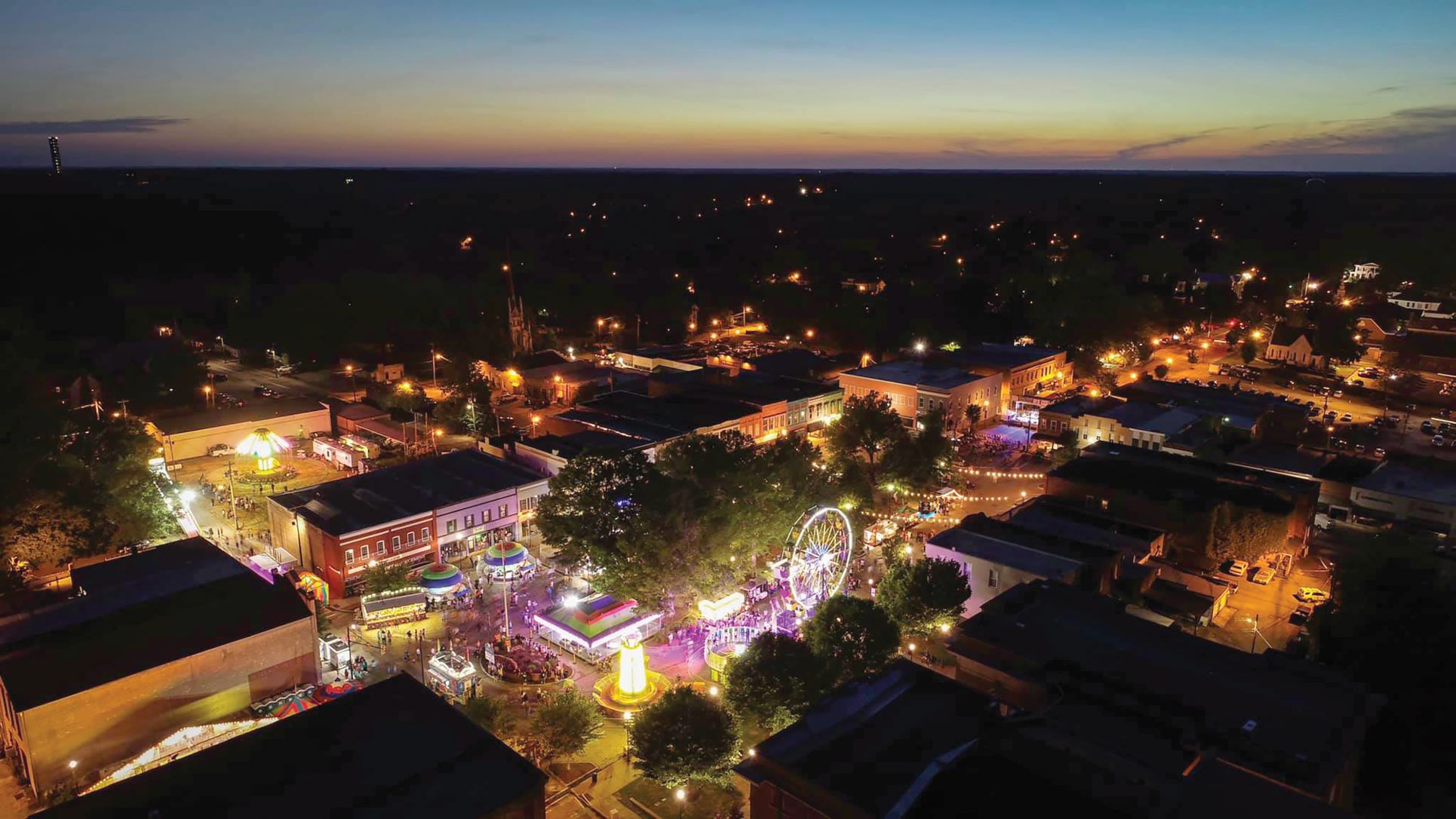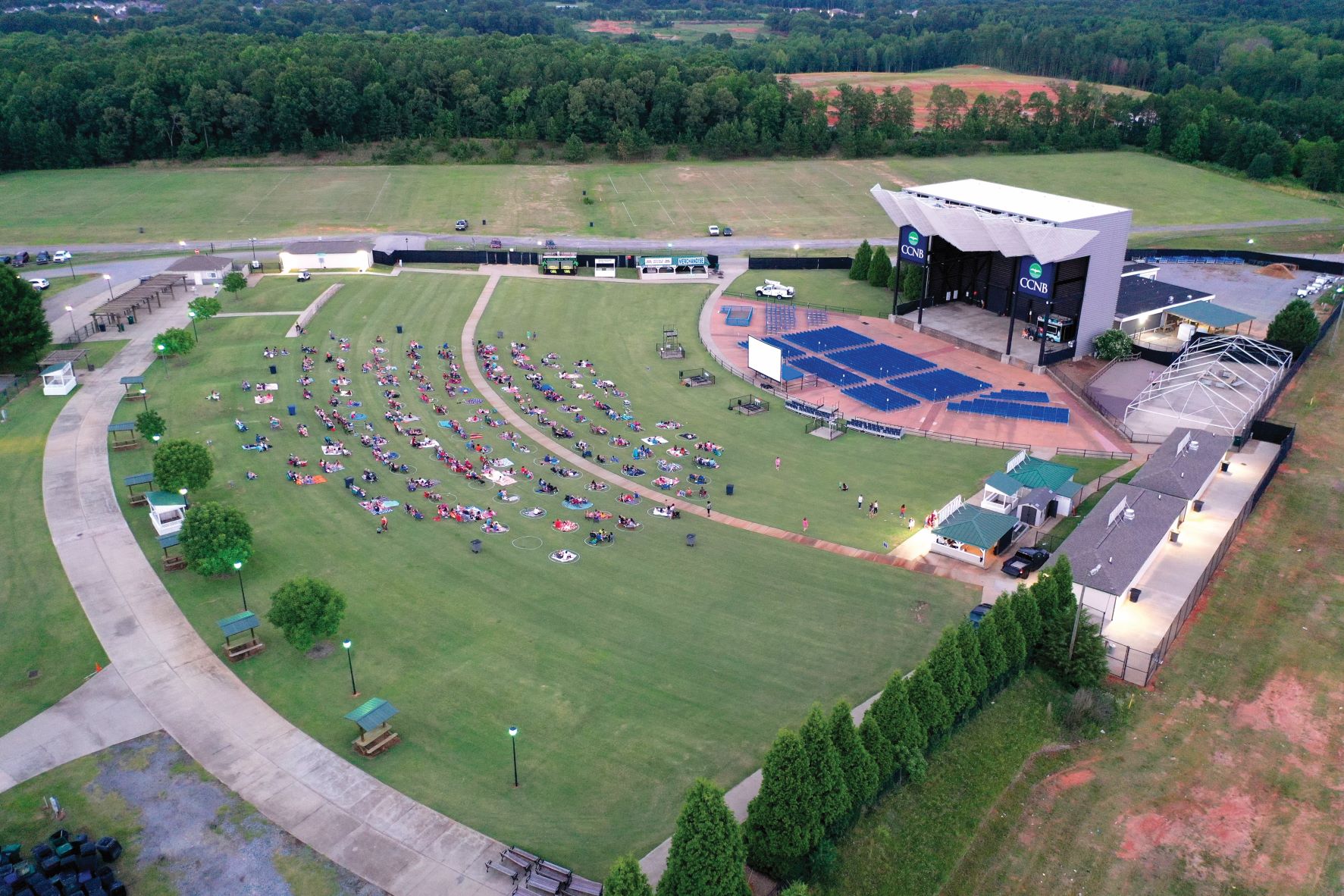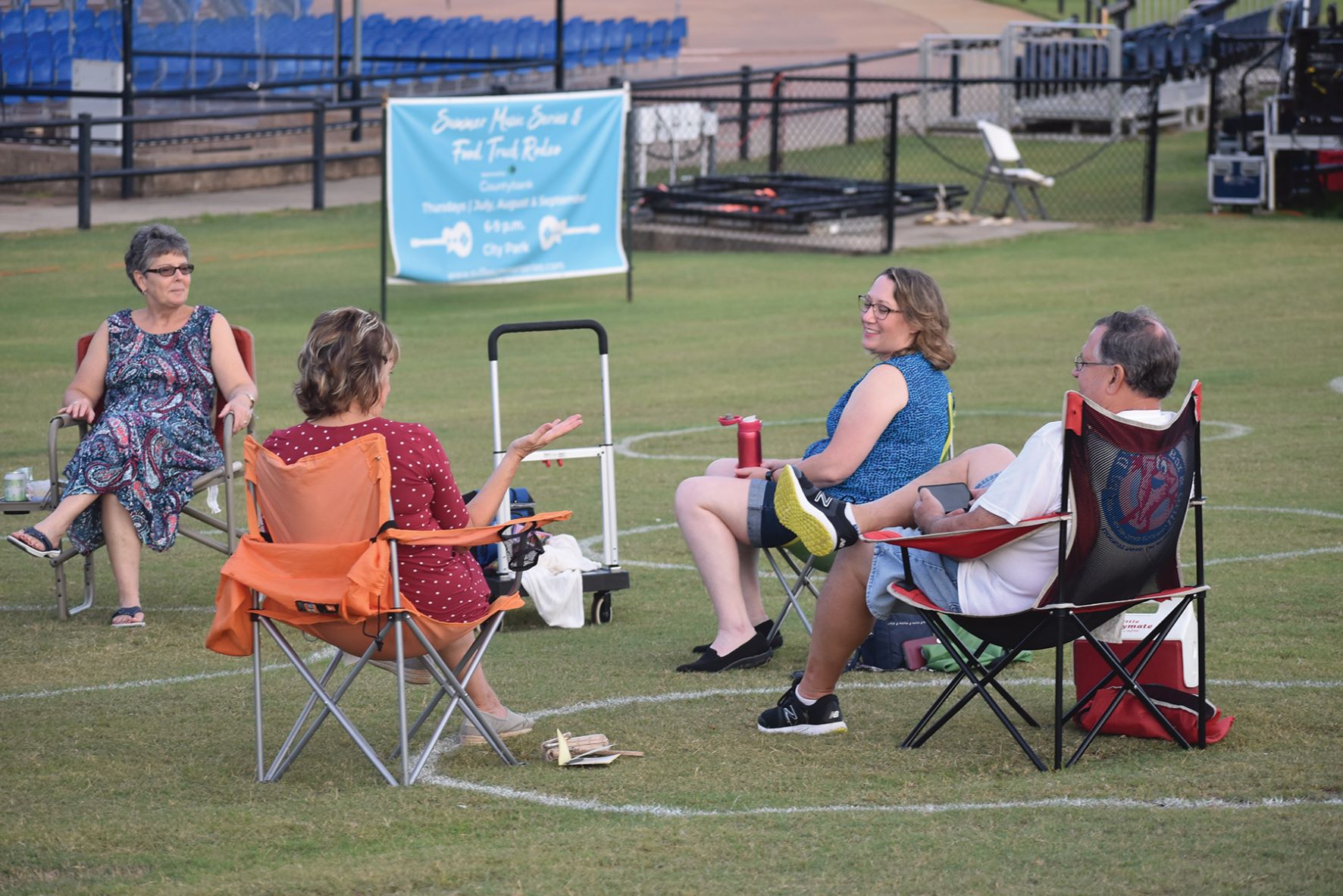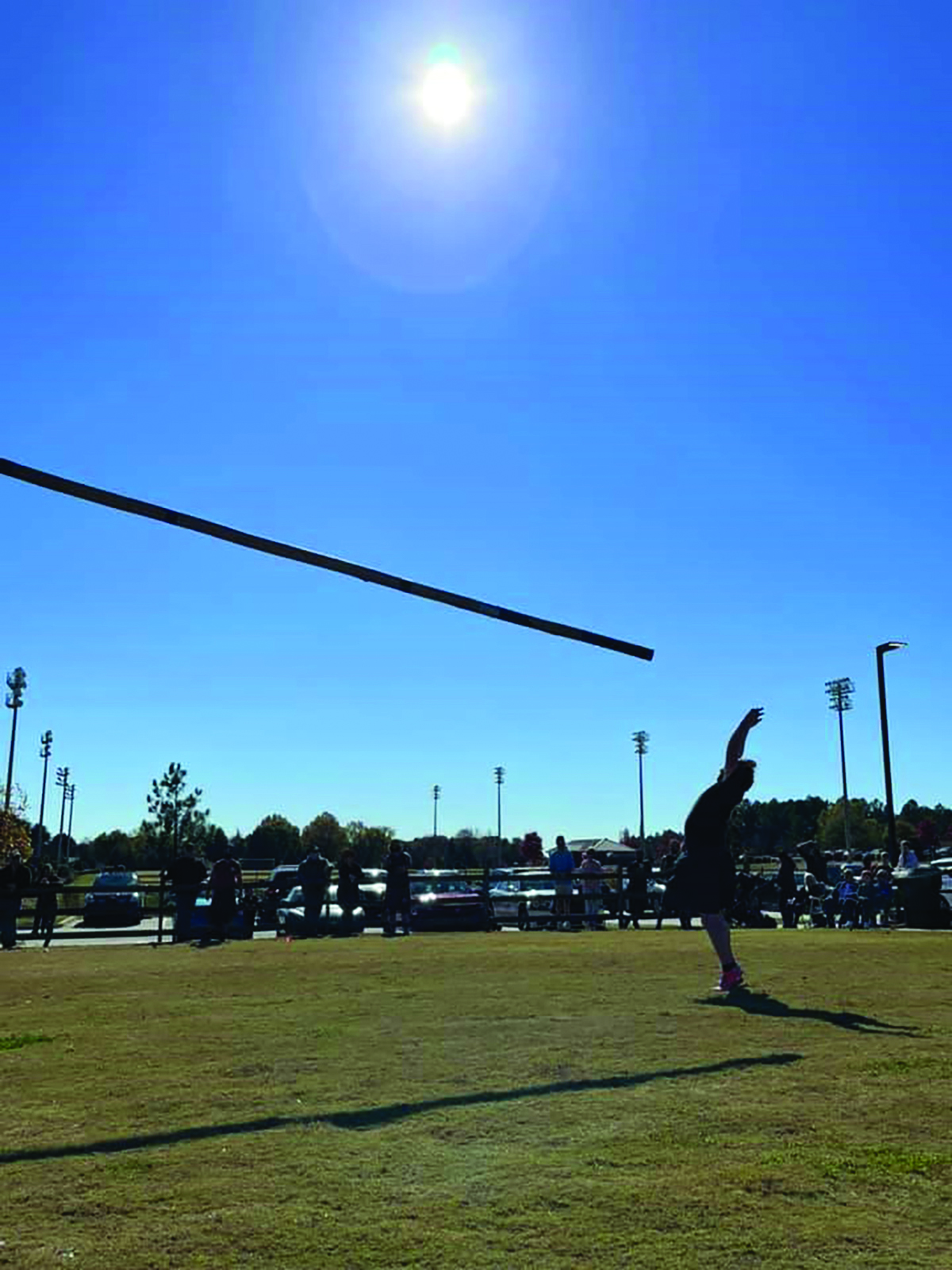Downtowns, amphitheaters and parks are alive this year, as cities are hosting festivals, art shows, concerts and other community events — some on the schedule for the first time since the COVID-19 pandemic brought large community events to a halt.
It’s a welcome change for both festivalgoers and event planners, who spent much of 2020 and 2021 balancing the importance of public health and community safety with the need to socialize and boost the local economy.
“I knew the pandemic was serious when the city decided to cancel Celebrate Simpsonville, our Independence Day event in July 2020,” said Justin Campbell, the community relations specialist for the City of Simpsonville. “The artist, Sister Hazel, had been booked and we’d already started promotion, but we knew large events like Celebrate Simpsonville could be a superspreader. There wasn’t an option — we had to cancel it.”
The story was the same all over the state in 2020. With vaccines available and more information known about the virus in 2021, cities began dipping their toes back into the live-event arena, with precautions like social distancing at outdoor movie nights, limited seating at indoor concerts and keeping masks and plenty of hand sanitizer on hand. Some cities opened wide, then scaled back as different variants of the virus roared, eased and roared again.
In 2022, cities and towns have dusted off their cultural calendars and brought back their events and festivals, which have drawn extra-large crowds eager to be part of group gatherings. And cities used the time of disruption to reimagine and make some changes to the events.
In Abbeville, there was much disappointment when the city’s popular Spring Festival was canceled in May 2020. That fall, the city hosted its Hogs and Hens barbecue and blues festival, but with limited capacity, a reduced number of food vendors and no music.

After canceling the Spring Festival in 2020 because of the pandemic,
Abbeville brought the event back in 2021. Photo: City of Abbeville.
“People just got their food and left. We took precautions, paid for extra [personal protective equipment] and sanitizing. It was worth it — people wanted to attend —but it wasn’t the same,” said Austin Walker, Abbeville’s community development director.
By May 2021, the city put precautions in place and brought back the Spring Festival.
“People were ready to celebrate and see other people and get out of the house. We had the highest ticket sales for carnival rides, the biggest economic impact ever,” Walker said.
By fall 2021, the COVID-19 delta variant was spiking, and while Hogs and Hens had good attendance, she said, attendees again tended to leave early with their food.
“They weren’t gung-ho to be around large groups of people,” she said. “I’m hoping we’ve gotten past the spikes.”
Earlier, in 2019, the city took over programming of the historic Abbeville Opera House, looking to diversify programming by adding live music and comedy acts. That effort too was forced to shut down because of the pandemic.
“It turned out to be a blessing in disguise,” Walker said. “We were able to do installation and historic preservation work. We put in a state-of-the-art sounds system that the opera house didn’t have. We did roof repairs that the building needed to keep it going for years to come. We didn’t have people in there, so we were able to do the work to invest in its future.”
The opera house reopened at limited capacity in January 2021, and by May it was at full capacity. The first two full-capacity shows were sold out.
In Simpsonville, the city moved its 2020 summer music and food truck rodeo from its accustomed small pavilion to the much larger lawn of the Heritage Park Amphitheater, limiting crowds and requiring social distancing.
Simpsonville was one of the first places in the state to set up social distancing circles at events — with more than 100 circles drawn on the lawn, 6 feet apart, allowing small groups to socialize more safely at concerts.

As a pandemic precaution, Simpsonville used marked-off social distancing
circles for movies and concerts at its CCNB Amphitheatre.
Photo: City of Simpsonville.

“During this whole pandemic, there were lot of debates about choice. We erred on the side of trusting the public that they would be responsible so we could continue to have events,” Simpsonville’s Justin Campbell said. “It was a lot of logistics, a lot of cooperation among department heads and staff. But we got into a good groove.”
By February 2022, the city opened its newly renovated arts center. At its first event, the majority of the 300 seats were full.
Campbell said Simpsonville learned a few lessons it will hold onto from the pandemic, including a fuller appreciation for outdoor events as a way to reduce the spread of illness. For example, the city has recently renovated a dilapidated, brick potato storage shed, now known as the Tater Shed, into an open-air event space.
“We’ve come to appreciate that being outdoors is better for people and it also can be a protector against the spread” of the virus, he said.
The Town of Clover also used the pandemic to rethink some of its events, including the St. Patrick’s Day Festival, a mainstay for more than 25 years. It canceled the festival in 2020 and 2021, but brought it back this March.

Clover’s Highland Games returned in 2021 after a hiatus.
Photo: Town of Clover.
“The two years gave us the opportunity to reflect on all of our events. It was a huge review process where we could get ideas from employees, people in the community and vendors,” said Sam Green, the special events coordinator. “We asked, ‘What could help bring in larger crowds? What could we do better? How can we improve on what we have?’”
Some of those changes were implemented for the 2022 St. Patrick’s Day festival, where a new section was added to bring in more home-based businesses.
“A lot of these businesses started up during the pandemic – arts and crafts, jewelry, pottery, signage, boutiques,” she said. “We were able to allow a bunch of new, individual vendors to come out on St. Patrick’s Day. It was a great way to get them in front of the public.”
Clover’s iconic Highland Games returned in November 2021 after a two-year break, with athletes participating from as far away as Florida and Alabama, and 15 to 20 vendors selling Scottish-themed items along with food and beer.
The town also has decided to revamp its summer event series, along with adding a food truck night once a month in the downtown area.
“We want it to bring everyone out to downtown. To socialize. To visit shops and see what Clover has to offer. It’s all about trying to find ways to improve,” Green said.
And while the town’s summer movies in the park were canceled the first year of the pandemic, they returned in 2021.
“Last year we were able to bring movie night back. It was still free, but we limited the amount of visitors who came in. People had to reserve their family’s 8-by-8 circle,” she said. “This year, we are bringing back vendors and open seating. Everyone’s ready.”
Pandemic disruptions created many difficult lessons for special events, but it also led to examples of creativity and resourcefulness. Many canceled events were keenly missed by their usual attendees, and event planners have discovered more ways than ever to make the events happen.
